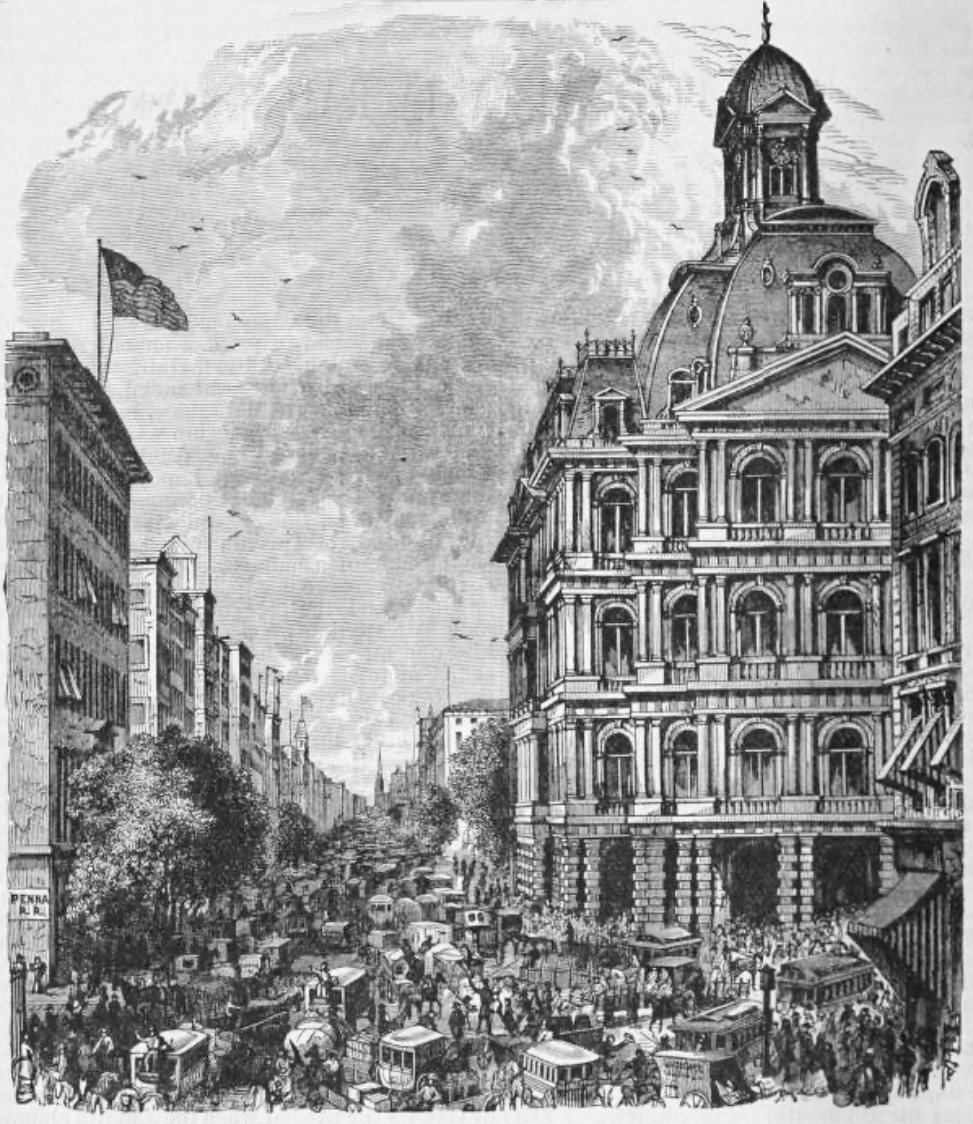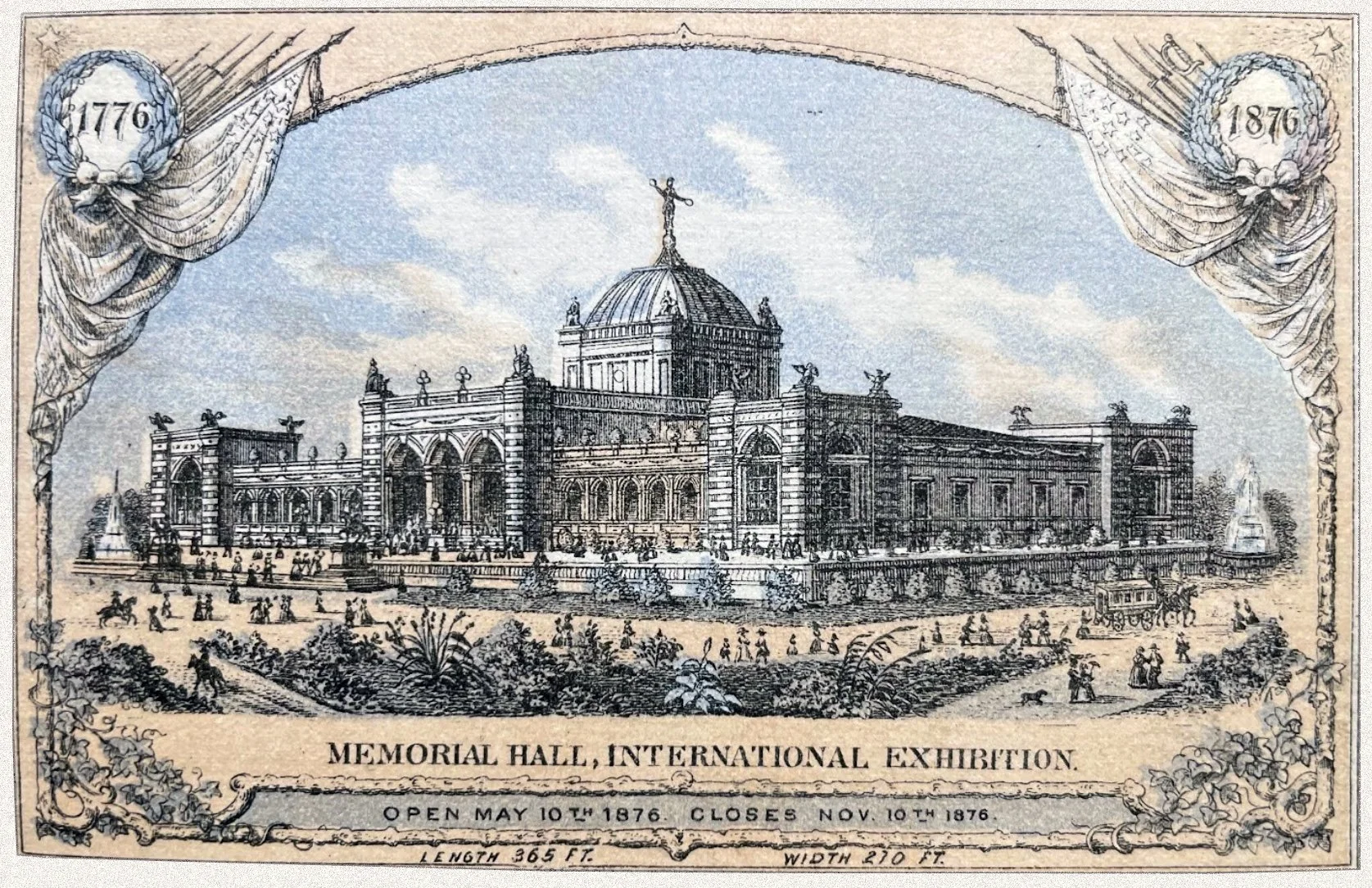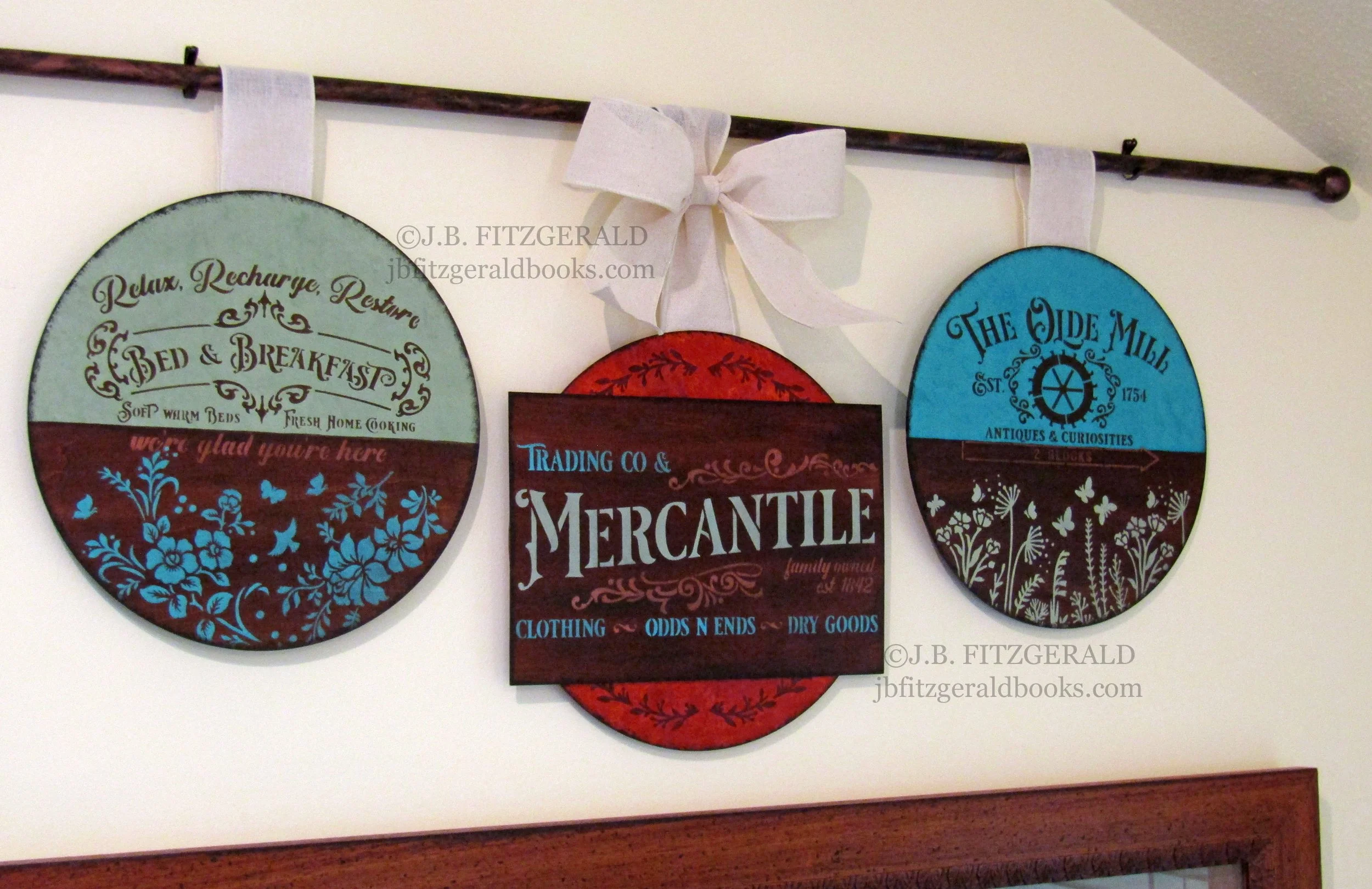diary entry: may 10, 1876
Springtime has settled over the Northwest territories, dabbing the landscape with fresh hues and stifled sneezes in equal measure. The only signs remaining of a merciless winter are the ladies draped fully in black, lace veils obscuring from public scrutiny the swollen eyes and empty gazes beneath. To see one, it stirs the soul, reminds me of the bond we share as women, acquainted or otherwise. To see, in such numbers, the widows, the mothers, the sisters and daughters in mourning, it rends the heart utterly. How inconsequential it is, the discomfort of a sneeze, when viewed in light of a grief spread wide as the present season's proliferative pollen.
Rutherford B. Hayes, Republican candidate for U.S. President
The British Empire continues to expand under the guiding hand of Queen Victoria, while here across the sea, America finds herself, once again, in a state of upheaval. Three years into a devastating recession, the attention of the press has shifted from the miserable masses toward the contentious presidential campaign between Rutherford Hayes and Samuel Tilden, a race that will be determined not by true democracy but almost exclusively by the candidates' own peers, that is to say wealthy white men. Hordes of law-abiding, respectable people have already been cunningly disenfranchised. No one seems to care. No one that can vote, that is. I can only yearn for the day when my voice will be counted too. I'd like to believe it will happen, yet I am frequently disheartened by the actions of those who wield their power the way a soldier wields his rifle. What an example they made of that courageous Miss Anthony, four years back now, when the authorities had her arrested and tried in Rochester for nothing more than attempting to cast her vote, to have her say in matters that impact her existence as much as they do for any male citizen of this shamefully insular melting pot of a country. Maybe one day, she and other like-minded women will march this nation toward greater equality. Maybe I'll be among those leading the charge.
I wasn't trying to eavesdrop. Truly, I wasn't, but deposit a couple whisky-soaked fellas outside the saloon doors late on a still evening, and their voices carry like cannon fire in a mountain valley.
“Millions," one of them said, emphasizing the word as if he'd only recently heard it for the first time, only just felt its potency and magnitude as it tripped and slurred over his befouled tongue. I swear I could smell his breath from across the road. "They're sayin' there'll be millions of 'em, like wild horses stampedin' in from all over the world."
His grizzled companion slapped him on the back. "Well don't that just beat all?" Then they stood there gaping this way and that, as if they couldn't remember which way was home or, for that matter, what they'd been gabbing about in the first place.
I reckon they could only be discussing the Centennial Exposition, commencing this very day in Philadelphia. Oh! To be back in my hometown, a part of the excitement, to be surrounded by so much history and culture, to be among the first to witness the marvels of this modern age: inspired inventions, incredible advances in science and industry, things we might have never dreamt possible. I can hardly imagine the wonders to behold, but, though the event will carry on another six months, I lament it is only my imagination--with a little help from the newspapers--that will bring the Expo to me. Some wishes simply aren't meant to come true; some homecomings simply cannot be. The transcontinental railway is a phenomenon, I hear, conveying adventurous, wayward, and homebound souls over the continent, from one coast to the other in a mere seven days. Such expeditious travel, it nearly strains belief...and with a ticket price less than ten percent what a pilgrimage like that would have cost back when. Still, even a third-class bench seat is a bit too steep for my current predicament, never mind the expense of passage for two. What would be the point of the journey, after all, if I couldn't share with my dear Dennie the amazing discoveries that await? I doubt the Misters Hayes or Tilden would bat an eye at the fares in any class, despite these trying economic times. Butter upon bacon--that's how these politicians roll, even as they spin their tall tales about representing the everyman. Far as I can tell, we perspire and bleed, we suffer and sometimes die in the service of bringing these men into the world, yet not one of them promises to represent the everywoman.
A world away from where we'd begun in the Nevada desert, this month Dennie and I stumbled upon a modest settlement in the Washington Territory. The dusty streets reek of fish and oysters, sewage and dungheaps, liquor, tar, even molasses, which is not as sweet or pleasant as one might think when blended into the overwhelming miasma of all the rest. You can drench a rotting corpse in Eau de Cologne, and it'll still never smell like a meadow. Though that fishy odor never wanes, the air feels cleaner nearer the water. I was surprised to find the harbor bustling with activity so frenzied, a controlled kind of chaos, if such a contradiction exists--men by the dozens in perpetual motion: tradesmen, fishermen, criminals too. One of them stole my hatpin, but only once I'd jabbed it into his backside after he'd knocked me down and attempted to wrest the shoes right off my feet. Momma frequently said, "Never leave home without your hatpin, little bird." She always called me little bird. I don't know why she did that, but I liked it. Also, her advice was never anything but solid.
The theft wasn't the most auspicious start to our stay here, but, on the heels of losing our baggage in the river several days back, one small sacrifice in the interest of keeping my feet covered doesn't strike me as especially catastrophic. Our luck has improved in small measures though. Dennie spotted a sign the other day for rooms to let at thirty-five cents per night. The cramped accommodations offer nothing more extravagant than dingy walls, creaking floors, a sagging mattress, and a wash basin, but it will do for now, despite its persistent stench of damp and what smells suspiciously of urine.
From the sounds carried through the wall last night, I think the darling infant next door is quite possibly dying. I can't fathom anyone making a racket like that for lesser cause. (I've watched men marched to the gallows with considerably less fuss.) That poor mother. I'll stop in and inquire if there's anything we can do for her before we head out for the day. While I've not yet been so blessed, Momma always told me mothering was the toughest job in the world, one that would make armies of grown men fall to their knees in surrender. Not tallying the two daughters born without so much as a flutter in their chests, she brought up eleven boys and three girls all by herself after losing Poppa to the war. When the battlefield claimed her two eldest sons and second-born daughter as well, when the scarlet fever came for four of us, taking my youngest brother, she soldiered on through her pain, never missing a single beat of life's drum, never once waving that white flag in the air. If anyone ought to have been entrusted to run this country, it would have been my Momma, may she rest in peace.
We passed a mercantile on the way in where we hope to procure a change of clothing to continue our journey, provided the proprietor is open to barter. Despite our losses, we harbor no expectation of charity; to a willing employer we will gladly trade an honest day's work for what we require. There's even a charming old converted mill down by the river. Its sign guarantees a selection of curiosities that will be the envy of every caller. Though we haven't an extra dime at present to spare for such frivolities, I admit my curiosity is piqued. Also, I seem to be in urgent need of another suitable accessory to secure my best--and now only--bonnet. It gets mighty windy in the Territory, but I cannot deny, after years of harsh desert living, that cool and briny sea air, it's been a tonic for the soul.
Of course, we might not be able to continue our expedition forthwith, or maybe ever, not if whispered legends of the curse are true. They say that many, many years past, a group of Chinese laborers died in the local mine. Some recall that they'd drowned; others insist they'd been buried alive. A few even speculate that their terrible fates had been no accident. Regardless of what brought about their tragic ends, however, all sides seem to agree that, as an act of retribution, the miners' spirits hold everyone captive within the town borders to this day. Purportedly, by hook or by crook, not one single determined individual has succeeded in leaving this Northwestern settlement behind. Well, should it come to that, at least we've found a place to stay...
“Dear gentlewomen of the world, never, ever leave home without your hatpin.”
Oh, hello. I do apologize. It seems my mind has wandered away again, swept into an alternate reality. Occupational hazard. It is, indeed, springtime in Washington state, May 10, 2025. By mountains or sea, the air, while definitely sneeze-worthy, smells intoxicatingly fresh and clean, the furnishings provide both comfort and support, and the modern conveniences are so modern and convenient, it would be foolhardy to wish for the simpler times of the nineteenth century, times that were, in fact, infinitely more taxing (and frankly downright icky) in almost every conceivable way. Yet, as Dennie and I concluded our morning commute through the not-quite-untamed territory of our living room, we spotted inexpensive accommodations to let, a mercantile to provide apparel and dry goods as needed, and even an old mill converted to an inviting retail haven brimming with antiques. We'll gladly live our lives in the present--unsettling and infuriating as that can often be--but there, at the southeast corner of our home, there will always be a dusty road leading us back to 1876. Not that we'd actually program a time machine to whisk us back to that era on purpose. On second thought, maybe we would, just for the Expo, provided we could zap ourselves straight home afterwards. As a novelist, I'd be thrilled to witness a demonstration of this new-fangled contraption called a typewriter. It sounds positively intriguing.
My, how far we've come. To the ten-million attendees, the Centennial Exposition also introduced household staples like the sewing machine and the telephone, a device that initially stirred more fear in the masses than it did wonder. For many, it seemed to be the Devil's doing, a machine impossibly transporting sounds over distances through a thin, mysterious wire. What kind of mass hysteria would spread at the sight of our mobiles, our laptops, our virtual reality headsets? What dark sorcery would our ancestors detect in our smartwatches and rings that can monitor the inner workings of our bodies? From a Victorian perspective, these modern advances would not be viewed as the latest exciting tech. For all but the most daring visionaries, they'd inspire nothing short of terror. Even as a member of this digital age, I can't say I'm entirely comfortable with some meddling accessory worrying me every time my heart rate spikes or informing me that my sleep was far from optimum. The resulting exhaustion generally makes the latter evident all on its own. Funnily enough, our forebears could recognize a restless night without any external assistance either. (Three out of four bears can do this as well, but I make it a point to never inquire after the sleep habits of any carnivorous, overtired species endowed with particularly powerful jaws.)
As for the photograph above, I openly admit the signs are historically flawed to illustrate the year I've chosen to evoke in this post. Let's call them instead an ambiguous homage to yesteryear. While I've painted my own wording and flourishes completely by hand on numerous past projects, hand lettering is a meticulous, time-consuming, neck-straining, back-breaking, joint-inflaming pursuit that I simply couldn't take on right now. Instead I chose these designs from my own pre-made stencil stash. While boarding houses were common during the period of the above diary entry, the bed-and-breakfast concept didn't emerge until after the second world war, and vintage collectibles were only bought and sold on the private market until the early twentieth century when the first antiques merchants of Boston opened their doors to the public. As Dennie and I never traveled through the fledgling territories of the American West either, I think we can overlook these minor anachronisms rendered in paint. This story is really about a series of signs, after all, not a particular year in a timeline nearly a century before our own. That was just for fun, an offbeat introduction to a new spur-of-the-moment installation.
The diary itself is obviously a fictional account (we're not that old, despite my resistance to give my entire life over to tech), but, painted signs notwithstanding, the narrative is based on factual historical events and the inhospitable frontier conditions of 1876. Even the curse is a genuine local legend, though I doubt any true believers remain. Then again, as of last week, it's been twenty-two years since we landed in this part of Washington...and we Fitzgeralds still haven't left.
Make of that what you will. Maybe we just like it here.
A literary peek into the past is all well and fine, you're probably thinking, but what's the connection? Why are we still here? Several years ago, we pounded a couple of heavy-duty picture hangers into the wall, sturdy enough to support three wooden frames (with glass and wooden mats) suspended from a single dowel rod. The arrangement had only been intended for the holiday season, but, inadvertently, those picture hangers had both gone right into the studs, making them impossible to remove without significant damage to the wall. Maybe if they weren't so near to the ceiling, we might have managed it, but extracting them would require a perilous reach with virtually no leverage, even for Dennie on the highest step of the ladder. For two months out of the year, our framed Christmas imagery delights us in that precise spot. For the other ten months, I loathe the sight of those ugly metal hangers.
Enter: a creative solution. To most any problem, I find, there is one.
If a dowel supporting three dangling artworks can cover those eyesores at Christmastime, then why can't a different dowel supporting three other artworks reside there the rest of the year? I opted for a coordinated set of signs, a display of distressed vintage-inspired whimsy. And, while we had to put up with the clutter of craft supplies and several drying pieces spread over multiple surfaces for a while (not to mention numerous containers of custom-mixed paint colors in the refrigerator), now that the collection is done, I won't have to gaze upon those unsightly hangers again until this trio vacates their home in November to make room for Christmas...that is, assuming ill-treated, long-dead miners harbor no enduring grievances against my handmade signage.
Bonus, during a period of immense work-related stress, the sight of these new signs catapulted my imagination into this unexpected and much needed holiday into the past, one you've either cheerfully taken with me or desperately wish you hadn't. Time travel can be a bit discombobulating. Not everyone, I suspect, has the patience or constitution for it. Unlike yours truly, not everyone maintains the sanity and level-headedness required to seamlessly bounce back into present-day reality.
Now...where on earth did I leave that confounded bustle?
project notes for crafters:
If you can brush on base colors and have a proper stencil brush on hand, the signs from this post make for a relatively self-explanatory DIY, so instead of outlining a step-by-step, I'll leave you with the supplies required and a few helpful hints. Should you wish to create something similar in the colors and subject matter of your choosing, you'll need a 5/8" dowel and suitably sized caps or finials for the end, three 12" balsa wood rounds, one 12" x 8" balsa rectangle to adhere over one of the rounds, hanging ribbon, a strong glue (I recommend Aleene's Fast Grab, but most good wood glues should do the trick), sea sponge (for an optional faux finish technique), paint and stencil brushes, and the paint colors and stencils that suit your vision. Varnish is also optional, though the added clear coat will better protect your signs from dust and damage. A water-based polyurethane in a satin finish will boost your colors without appearing overly glossy. (DecoArt Americana DuraClear Satin Varnish is one of the best I've used. It brushes on beautifully, lacks that strong, headache-inducing odor that others have, and, unlike some, is not prone to yellowing over the years.)
While you could go with a more substantial wood, balsa is extremely lightweight and will not cause your dowel to bow over time. For best results, remember to blot the excess paint from your stencil brush and dab, or stipple, the color over the cut-out areas of the stencil. This will prevent the color from bleeding beneath the stencil edges. And, particularly if you reside in a damp climate, as we do, wait at least twenty-four hours before varnishing to ensure the paint has thoroughly dried. Good luck. Have fun. And always be inspired!



